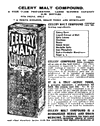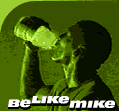 |
 |
One of the questions I'm most often asked by journalists and students is: how has the internet affected hate groups?
It's benefited the rest of us; how has it benefited the Klan and the Nazis and the Holocaust-deniers?
My stock answer for this one, now, is "it's going to get worse before it gets better." I say this because I know the reason it's going to get worse, and I know the two reasons that it's then going to get better.
Things Get Worse
We're working in a new medium now, a mass communication medium unlike any the the world has ever experienced. The net will change the world as much as television, and in the long term, possibly as much as Gutenberg's printing press. In 1994, that would have been called wide-eyed fanaticism, but now in 1998 it's pretty much mainstream thought.
But every new technology, introduced quickly into a culture unequipped to deal with it, causes adjustment problems. Communications technology is no exception. The best-known example, of course, is the popularization of radio just as the Nazis were coming into power. The dynamic, fiery doctrine that Hitler and Goebbels offered could not have been conveyed in print. And the citizenry, unaccustomed to propaganda from the new source, were not fully able to handle its message.
The internet is a new source too, and though it's not a one-to-many but a many-to-many medium, it requires some adjustment too. Let's not delude ourselves that it's going to usher in nothing but good.
As Douglas Barnes wrote way back in 1994:
It used to be that a lot of my net friends thought the growth and global spread of the Internet was an unmitigated Good Thing. "Global communication is the key to world peace," I used to hear. "High bandwidth connections between nations will create a global sense of community." ...
But you don't hear the boundless optimism anymore ... there are fewer illusions about Internet growth leading to peace, love and baby ducks. ...
People aren't going to be throwing virtual flowers to each other, they're going to be mixing full-color animations of aborted fetuses crying 'mommy... mommy' into their abortion flamewars. They're going to burn each other in virtual effigy. Christians will dangle fantastically well-rendered 3-D pork chops in front of Moslems, Moslems will dangle 3-D T-bones in front of Hindus.
This is true, of course.
And it'll happen with the kind of hate speech we deal with at the Holocaust History Project, too. We can already find collections of slick-looking Third Reich graphics. But in the years to come, we'll see mocking animations of Holocaust survivors saying and doing negative Jewish stereotypes. We'll see Quicktime movies of Steven Spielberg talking, with his mouth morphed around new antisemitic words: an übermensch's overdub. We'll probably see 3-D Talmuds exploding when punched by a skinhead's fist.
Der ewige Jude will look like child's play.
But it won't be confined to the lowbrow. We've already seen a proliferation of more professional-looking Holocaust-denial material. Most of it is still just as chaotic as Arthur Butz's unreadable Hoax of the Twentieth Century, but -- like Hoax -- it has many footnotes, seems erudite, and aims above the level of the lay reader instead of below. On the face, it's indistinguishable from real Holocaust research.
Call up any internet search engine, and search for any typical keywords like "Holocaust," "Auschwitz," and so on. Chances are, you'll get at least two Holocaust-denial hits in the top ten: worthless bunk, yet probably indistinguishable from any other amateur work on history for someone who doesn't know the subject matter.
And because none of the denial sites is obligated to crosslink from
their lies to the refutations, many casual web surfers will be confused
 and leave the denial sites not knowing how much (if any!) was lies. This
leads to students writing papers on -- I actually got email once asking
for my thoughts on the subject -- "The Holocaust: Did It Happen Or Not?"
and leave the denial sites not knowing how much (if any!) was lies. This
leads to students writing papers on -- I actually got email once asking
for my thoughts on the subject -- "The Holocaust: Did It Happen Or Not?"
Things Get Better
So how can anyone possibly be optimistic about the impact of the Internet on the message of hate?
First: we'll adapt. We've adapted remarkably well to the technology of the twentieth century. We got used to radio. We got used to television. We'll get used to the internet.
A hundred years ago, advertising was pretty much limited to just
giving the name of your business and what you were selling. Over the
last century, we've evolved dull and straightforward into slick
packaging. The generation that sat around the television watching the
test pattern (because there was nothing else on) would have been
helpless pawns in the hands of the marketing genius who invented the
campaigns "I'd Like To Buy The World A Coke" or "Sprite: Obey Your
 Thirst" -- or the product-placement of Junior Mints directly into the
plot of a sitcom.
Thirst" -- or the product-placement of Junior Mints directly into the
plot of a sitcom.
Propaganda, like advertising, is a memetic arms race where we, the citizens, are constantly evolving more effective filters against better- and better-packaged ideas. We're not affected by it in the same way our parents were. Our immune systems have improved. And our children's will be better still.
Some may argue that the effect of pseudoscience like Holocaust-denial will just be to make people distrustful of real science. This, after all, is a milestone they'd be happy with: not to persuade 1% that they are correct, but to persuade 10% that real historians might be terribly wrong.
If the reader's response to a confusing array of footnotes and charts is to think, "this looks pretty scientific to me, I suppose there might be something to it," then the deniers have advanced their cause.
I think, instead, our children will be more discerning than we are. They will have grown up with cults, wackos, UFOlogists, and the scientific proof of anti-gravity just one click away. They will have to distinguish the Fortean Times from the Netly News somehow. As they mature, they will know, better than we do, that op. cit. and scientists now agree are not very good ways to tell truth from fantasy.
Second, and more importantly in the long term...
We aren't born knowing how to hate. As I type, my window's open and I'm hearing the happy shouts of young kids playing below: black kids, white kids, riding their bikes around, some still with training wheels, some playing basketball in the parking lot. If they grow up disliking or distrusting people who look different, it'll be because some adult told them to.
But the internet is the great equalizer. Anything you write or draw or paint or compose, to show the world, is offered up without a hint of what demographic groups you fall into. "On the internet, nobody knows you're a dog," or a woman, or a 12-year-old kid ... or black, or white, or gay, or Jewish, or epileptic.
That's toxic to intolerance. Hate requires that
the target of hate be different, be inhuman. If we can't convince
ourselves that someone is so very different from us that they deserve
 to be despised, we can't despise them. We just can't.
to be despised, we can't despise them. We just can't.
It's also toxic to the message of Holocaust-denial. That belief system requires faith in the notion of a massive Jewish conspiracy which has controlled the world for this century at least. This conspiracy must have managed to forge thousands of documents, just for starters. And, more importantly, every Jew who lived through the Holocaust must be part of it because otherwise at least one of them would have stood up and told the world about the secret meetings where all the Jews were given made-up atrocity stories to tell.
This is only possible if you believe that the Talmud contains secret
messages telling Jews to always stick together and lie to the rest of
the world, and that synagogues are the places where they get together
to discuss each nefarious new plot. ("Same thing we do every week,
Pinky:
try to take over the world!") Of course this is more or less what most
Holocaust-deniers believe. Pure fantasy, and pure antisemitism. The
 kind of thing that falls apart with a small dose of sense.
kind of thing that falls apart with a small dose of sense.
But along with the 3-D exploding Talmuds, and the carefully deceitful pseudoscience, something else will start to emerge from the net. Every person using it will, every once in a while, realize that someone they've been reading, or corresponding with, is Jewish, or black -- and it will suddenly be impossible to ever see intolerance in the same light again. Suddenly, there's a human being, and the voice saying "they're different, they're not like you" gets a lot quieter.
And the voice stays quiet, because you can't ever know for sure that the person behind the monitor, the one you're playing Warcraft with, or chatting with, or whose essays you're reading, isn't Jewish.
Heinrich Himmler warned the SS about this problem, in 1943:
And then along they all come, all the 80 million upright Germans, and each one has his decent Jew. They say: all the others are swine, but here is a first-class Jew.
Even a brainwashed citizenry, after ten years of exposure to the most effective propaganda the world had ever seen, had to be forced past familiarity in order to hate. Even after seeing every Jew in their country set apart with a yellow star (exactly the opposite of the barrier-crashing community of the net). Even the most brutal killers in the SS had to steel themselves against this reaction.
This simple reaction, times a billion, will unify the world in a way we've never seen before. It won't all be peace and love. But there will be a slow realization that we are all fundamentally alike: that we have more in common than not, that we all want pretty much the same things out of life, and that we can all talk amongst ourselves like civilized people despite our differences.
And that's something that no bigoted website will able to counteract, no matter how much 3-D clip art they use.
![]()
![]()
The graphics above are illustrations of the progressively more-sophisticated nature of advertising and propaganda.
| Celery Malt Compound
Health drink advertisement, 1909.
From the Sears, Roebuck Catalog. |
 |
|||
| Be Like Mike
Sports drink advertisement, circa 1998.
|
 |
|||
| Komm zu uns
Nazi propaganda, circa 1941-42.
|
 |
|||
| CODOH Offers $100,000
Nazi-apologist propaganda, circa 1998.
|
 |
Last modified: March 16, 2004
Copyright © 1998-2001 The Holocaust History Project and Jamie McCarthy. All rights reserved.
Technical/administrative contact: webmaster@holocaust-history.org
Opinions in personal pages are not necessarily shared by THHP as a whole.